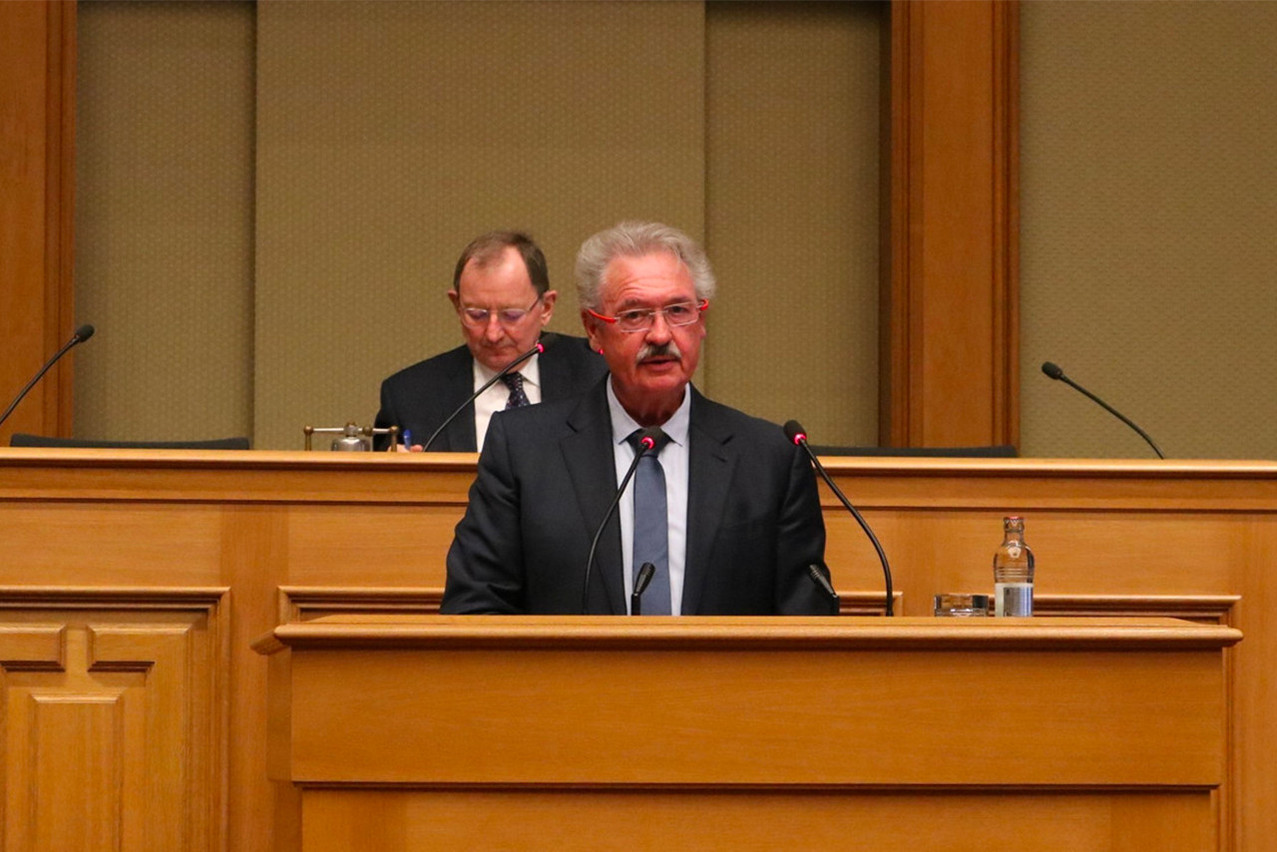“What none of us wanted to believe and none of us could believe has happened suddenly. Europe is again experiencing war in the 21st century, despite all the efforts for peace,” the head of Luxembourg’s diplomacy began before deputies at the annual declaration on Luxembourg’s foreign and European policy.
For this second most important political meeting after the , the minister for foreign and European affairs, (LSAP) did not hide the fact that it was the most difficult and heavy speech of his career since the war in Yugoslavia. “This military attack exceeds in its scale, in its brutality and in its global consequences anything the European continent has known since the Second World War. This is not only a war between Russia and Ukraine, it is a confrontation between two political systems, between two visions of the world,” declared Asselborn.
The war in Ukraine at the heart of the speech
The minister dwelt at length on the war in Ukraine following Russia’s aggression. He recalled the aid that Luxembourg has provided to Ukraine since 25 February 2022 and the entry of the first Russian tanks. The grand duchy has granted temporary protection to more than 4,500 Ukrainian refugees, including just over 1,500 children. “Luxembourg has taken its responsibilities by welcoming and offering immediate protection to people who have fled the war. This is also the first time that Luxembourg has provided military assistance to another country,” stressed Asselborn.
Luxembourg has delivered arms and military equipment to Ukraine for a total amount of €72m, i.e., 16% of the Luxembourg military budget.
Developments in Russia have shown us what can happen when the rule of law is gradually eviscerated to the point where there are no checks and balances.
The minister went on to justify the European sanctions against Russia by arguing that the aim was to deprive the Russian aggressor of the means to finance the war. “Sanctions have never been a choice, but a necessity,” Asselborn said. He indicated that €17bn belonging to Russia and people close to the Kremlin have been frozen in the European Union, including €5.5bn in Luxembourg.
International relations, climate and conflicts in the Middle East
During his speech, the minister for foreign and European affairs also mentioned the enlargement of the European Union, but also the importance of strategic decisions within NATO and with Joe Biden’s United States. Asselborn stressed the importance of relations with China, which, even if there are disagreements on human rights, remains “a partner in many areas.” The minister also mentioned the situation in Afghanistan and food insecurity in the world, the effects of global warming, the tensions in Iran, the still tense situation between Israel and Palestine, as well as the conflicts in Yemen and Syria.
Minister Asselborn concluded by firmly underlining the importance of protecting the rule of law, both in Luxembourg and in the EU. “Developments in Russia have shown us what can happen when the rule of law is gradually hollowed out to the point where there are no checks and balances,” he concluded.
This story was first published in French on . It has been translated and edited for Delano.

